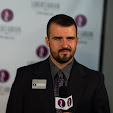As Delivered by Secretary of Defense
Leon E. Panetta, Vietnam Veterans Memorial, Washington, DC, Monday, May 28,
2012
--------------------------------------------------------------------------------
I’m honored to be here today with all of
you as we begin the commemoration of the 50th anniversary of America’s
participation in the Vietnam War.
Memorial Day is an appropriate
opportunity for all Americans to come together, to pay tribute to all those who
have fought and died for our country, across more than two hundred years, and
on battlefields near and far.
America’s sons and daughters have made
the ultimate sacrifice in defense of our liberties, to give all of us a better
life.
At this hour, at this hallowed and
haunting memorial, we commemorate the 50th anniversary of the Vietnam War – a
war that occupies a central place in the American story.
Millions of Americans were sent across
the Pacific to a little known place to fight in the service of the country they
loved.
Not only at this hour, but at all times,
we remember and carry in our hearts the more than 58,000 Soldiers, Sailors,
Airmen, Marines and Coast Guardsmen whose names are inscribed on this dark wall
for eternity.
For me personally, this is an especially
moving moment. As a member and later
chairman of the Vietnam Era Veterans Caucus in the House of Representatives, I
had the honor to work on the endowment of this memorial. To see the names of soldiers that I served
with inscribed on this wall. To see the
names of officers who went through ROTC with me at Santa Clara inscribed on
this wall. To know my good friend
Everett Alvarez, a hero from this war and a classmate of mine, who served with
great distinction in that war.
No memorial better reflects the pain of
the sacrifices that were made.
Many more came home from that war to a
country that failed to fully acknowledge their service and their sacrifice, and
failed to give them the honor they so justly deserved.
That experience, that failure to thank
those who were willing to put their lives on the line for this country, was
burned into the soul of my generation.
For too many Vietnam veterans, the recognition of their bravery came too
late.
The Vietnam generation, my generation –
is graying now. But this commemoration
effort gives the country an opportunity, today and in the years ahead, to try
and right the wrongs of the past, to remember those who served in this war and
what they did for us, their service, and their sacrifice on our behalf.
Last week, I had the opportunity to join
the President in paying tribute to a fallen member of that generation,
Specialist Les Sabo, who posthumously received the Medal of Honor.
Les Sabo died in Vietnam saving his
brothers-in-arms. And it was those same
brothers of his from the 101st Airborne Division who campaigned to re-open the
Medal of Honor process for Les more than ten years ago. The story of Les in many ways is the story of
the Vietnam war. We forgot, and now we
finally remember.
Next week, as Secretary of Defense I
will have the opportunity to travel to Vietnam to continue strengthening the
growing ties our two countries have been re-establishing since in 1995. We have come a long way since the war ended,
and it was veterans of Vietnam who led the way for our two nations to begin the
process of trying to heal the wounds of the war.
Today, Department of Defense personnel
are working diligently to identify and locate the remains of fallen service
members missing in action in Vietnam.
Let me assure you: this sacred mission will continue until all of our
troops come home and are accounted for.
It reflects the determination of our
military and our country to leave no man or woman behind, and to honor those
who have honored us with their service, valor, and sacrifice.
During the last decade of war, another
generation of warriors has answered the call to fight and sacrifice on foreign
soil. They have done all this country
has asked them to do and more.
As they have returned from overseas,
America, with our Vietnam veterans front and center in the effort – has
embraced this new greatest generation of service members, showing that we have
learned perhaps the most important lesson to come out of the Vietnam war – the
debt we owe to those who fight and who die for our freedoms.
The President and Mrs. Obama have done
so much to encourage Americans to do more to recognize and support these great
patriots, they have led the fight for the men and women who fought for our
nation.
As this country faces tough economic
times, we must do everything we can to ease the transition of the thousands of
service members who come home from war to civilian life. They fought for us. The least we can do is fight for them.
It is now my honor to introduce one of
those Soldiers who fought in Vietnam, Senator Chuck Hagel. He led an infantry squad in Vietnam during
the bloody fighting following the Tet Offensive. Like millions of our generation, he
demonstrated bravery, patriotism, and heroism on the battlefield, and he also
demonstrated that patriotism and that patriotism and that heroism in the life
of public service that has followed.
Chuck, we thank you for honoring us with
your presence today, and thank you for your commitment to the United States of
America.




